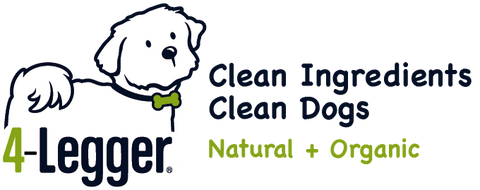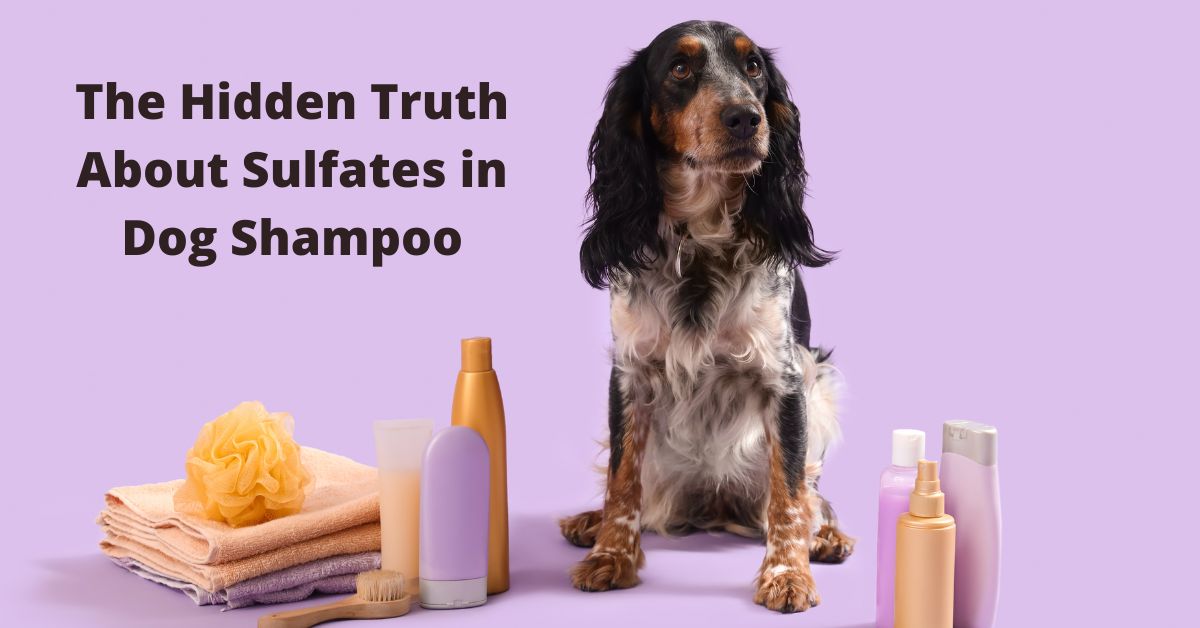Lesson 3: The Hidden Truth About Sulfates in Dog Shampoo
The other day, a customer told us she packed a few 4-Legger travel size bottles of dog shampoo for a weekend trip—for both her dog and herself.
She loved how it made her skin feel but mentioned that her friend was hesitant to try it, saying, "It seems too thin. I like creamy shampoo."
We hear this a lot. Many people assume thicker is better because conventional shampoos have conditioned us to believe that creamy texture = quality.
💡 It doesn’t.
When people ask why 4-Legger isn’t thick and sudsy like other shampoos, our answer is simple:
"Because we left out the bad stuff and still have a rich and sudsy shampoo."
What Is the "Bad Stuff" in Dog Shampoo?
Most shampoos—both for dogs and humans—contain sulfates. Sulfates are cheap, synthetic detergents that make shampoo thicker, foamier, and more effective at removing dirt and oils. They can also create the illusion of shiny, sleek fur.
Sounds great, right? Not so fast.
Sulfates strip away natural oils, leaving the skin dry and irritated. Since your dog’s skin is hidden under fur, you might not even notice the irritation unless it leads to dandruff or even an infection.
The most common sulfates found in dog shampoos include:
🚫 Sodium Lauryl Sulfate (SLS)
🚫 Sodium Laureth Sulfate (SLES)
🚫 Ammonium Lauryl Sulfate (ALS)
🚫 Sodium Coco Sulfate
These ingredients are often disguised as:
❌ "Coconut-based cleaners"
❌ "Naturally derived from coconuts"
❌ "Vegetable-based surfactants"
❌ "Plant-based detergents"
Don’t be fooled—they are still sulfates!
Why Sulfates Are a Problem in Dog Shampoo
🔴 Skin Irritation & Allergies
SLS and SLES are known skin irritants. Even at low concentrations, they can cause itching, dryness, and redness—especially for dogs with sensitive skin or allergies.
🔴 Toxic Byproducts: 1,4-Dioxane
SLS and SLES don’t just irritate the skin—they can also be contaminated with 1,4-dioxane, a cancer-causing chemical.
🛑 Here’s the catch: Manufacturers aren’t required to list 1,4-dioxane on ingredient labels because it’s a byproduct of the chemical process used to make sulfates. That means you could be exposing your dog to hidden toxins without even knowing it.
The Environmental Working Group data review found 1,4-dioxane is in 28% of human personal care products with baby products having some of the highest levels of contamination. 1,4-dioxane was found as a potential contaminate in
- 55% of baby bubble bath products
- 57% of baby shampoos
- 55% of baby soaps
❌ And that’s just human baby shampoos—there’s no study looking at contamination in pet products! Remember - there ARE standards for human products. They aren't standards for pet shampoo.
🚨 The EPA classifies 1,4-dioxane as a likely carcinogen, linked to:
✔ Liver & kidney damage
✔ Nervous system issues
✔ Environmental contamination via wastewater
The worst part? There are no regulations requiring manufacturers to remove 1,4-dioxane—because it’s considered an “unintentional” byproduct.
How to Spot Sulfates & Hidden Toxins on Labels
To protect your pet, always check shampoo labels and avoid these ingredients:
🚫 Sodium Lauryl Sulfate (SLS)
🚫 Sodium Laureth Sulfate (SLES)
🚫 Ammonium Lauryl Sulfate (ALS)
🚫 Sodium Coco Sulfate
🚫 TEA Lauryl Sulfate / MEA Lauryl Sulfate
🚫 “Coconut-based surfactants” (a disguised term for sulfates)
How 4-Legger is Different: 100% Sulfate-Free & Certified to USDA Organic Standards
At 4-Legger, we never use sulfates or synthetic detergents. Instead, our shampoos are made with:
✅ Organic saponified oils (like coconut and olive oil) for gentle cleansing
✅ Natural essential oils with antibacterial & antifungal properties
✅ No synthetic thickeners, dyes, or artificial fragrances
Because our shampoos don’t contain synthetic thickeners, they do have a thinner consistency. That’s by design and it’s one way you know it’s truly natural—without the greenwashing.
💚 USDA Organic Certification means:
✔ No sulfates
✔ No 1,4-dioxane
✔ No hidden toxins
If you’re looking for a safe, non-toxic dog shampoo, don’t just trust “natural” labels—trust certifications.
The Bottom Line: Ditch Sulfates & Choose Truly Natural Grooming
There are no long-term studies on how repeated exposure to SLS, SLES, and 1,4-dioxane affects dogs over their lifetime. Why take the risk when safer alternatives exist?
✔ Choose shampoos that are sulfate-free
✔ Look for USDA Organic Certification
✔ Avoid greenwashed marketing terms
💚 Ready to make the switch? Check out 4-Legger Organic Dog Shampoo - real ingredients, real transparency, real safety. 🐶🚿✨
Stay tuned for more eye-opening lessons in our Top 5 Safe Grooming Tips for Your Dog!





